Therapy and emotional support animals offer more than just companionship—they bring comfort and emotional healing to people facing psychological or emotional challenges.
These incredible animals are specially trained to tune into human emotions, providing affectionate support exactly when it’s needed most.
Let’s explore some of the animals that excel in these roles, giving you an engaging and insightful look at the diverse world of therapy and emotional support animals.
1. Dog

Dogs have long been cherished as therapy animals due to their loyalty and intuitive nature. Many breeds, such as Labrador Retrievers and Golden Retrievers, are particularly suited for providing emotional support.
Their ability to read human emotions makes them perfect companions during stressful times. Dogs can sense anxiety and respond with comforting gestures, such as cuddling or resting their head on your lap.
Training a dog for emotional support involves teaching them to remain calm and attentive in various environments. This, combined with their loving demeanor, has made dogs invaluable to those in need of emotional healing.
2. Cat

With their gentle purring and affectionate nuzzles, offer a soothing presence for those seeking emotional support. Their independent yet loving nature allows them to form deep bonds with their owners.
These animals are perfect for individuals who may feel overwhelmed by constant attention, as they provide companionship without being overly demanding. A cat’s presence can ease feelings of loneliness or anxiety.
Training for emotional support is minimal with cats; their natural demeanor often suffices. This makes them an ideal choice for those who appreciate quiet companionship and subtle, comforting interactions.
3. Rabbit

Rabbits are increasingly popular as therapy animals due to their gentle nature and ease of care. Their soft fur and playful antics bring joy and comfort to their owners.
These small animals are particularly suited for individuals who have limited space or who may not be able to care for larger animals. Rabbits require gentle handling, making them suitable for children and adults alike.
While they require a secure environment and regular feeding, rabbits are relatively low maintenance. Their quiet and calm presence can be a source of comfort and happiness.
4. Bird

Birds such as parrots and cockatoos, bring a unique form of companionship to those seeking emotional support. Their ability to mimic speech and engage with humans makes them interesting and interactive pets.
Their vibrant colors and cheerful songs can uplift spirits and provide a sense of joy and connection. Birds often form strong bonds with their owners through regular interaction and care.
While birds require a bit more attention in terms of environment and socialization, their engaging presence can be incredibly rewarding for those who enjoy lively and spirited companionship.
5. Guinea Pig
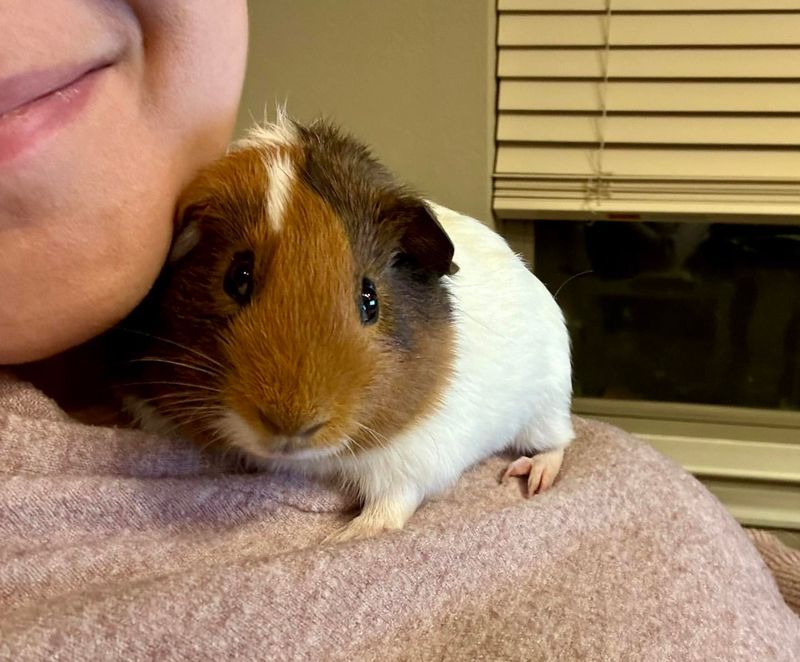
Guinea pigs are gentle and sociable animals, making them ideal for emotional support. Their soft fur and friendly nature provide a comforting presence to individuals of all ages.
These small animals are relatively easy to care for, requiring a simple diet and a secure living environment. Guinea pigs thrive on interaction and can be handled gently, making them suitable for children.
As therapy animals, guinea pigs offer companionship and can help reduce feelings of loneliness or stress. Their calm demeanor and playful antics bring joy to their owners.
6. Ferret

Ferrets are curious and energetic creatures, providing a unique form of emotional support. Their playful nature and intelligence make them engaging companions.
These small animals require stimulation and interaction, which can be beneficial for individuals needing a lively presence in their lives. Ferrets thrive on play and exploration, offering a sense of joy and entertainment.
Though they require more attention and care than some other small animals, ferrets’ ability to connect with their owners makes them a rewarding choice for those seeking a spirited and affectionate pet.
7. Horse
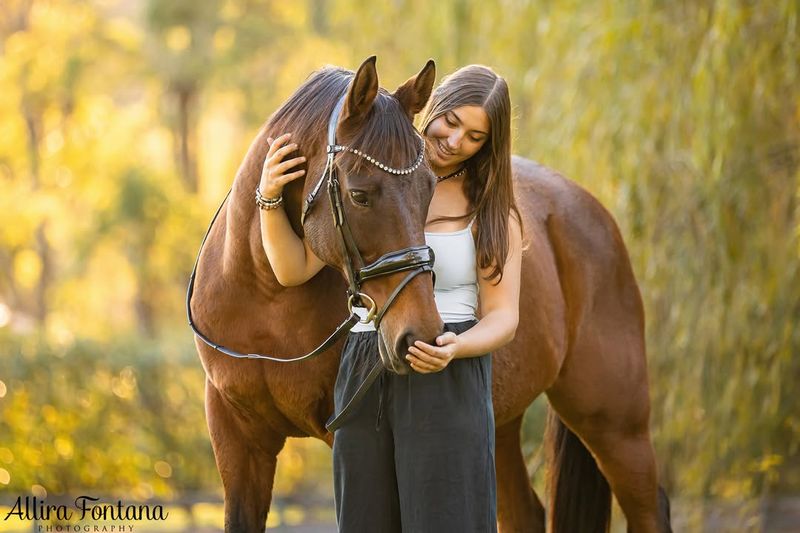
Horses have been used in therapy to aid emotional and physical healing. Their gentle nature and imposing presence provide a unique form of support.
Equine-assisted therapy programs utilize horses to help individuals develop trust, confidence, and emotional awareness. Interacting with horses can reduce anxiety and promote a sense of accomplishment.
The bonding experience with a horse, whether through riding or grooming, allows individuals to connect with nature and themselves. Horses’ sensitivity to human emotions makes them extraordinary therapy animals.
8. Pig

With their intelligent and sociable nature, pigs are becoming recognized as therapy animals. Their friendly demeanor can offer emotional support and companionship.
These animals are known for their ability to form strong bonds with humans, responding to affection and training. Pigs are particularly suitable for those who appreciate a quirky and loving pet.
Their presence can bring joy and laughter, helping to alleviate stress and loneliness. As therapy animals, pigs provide an unconventional yet effective form of emotional support.
9. Snake

Believe it or not, snakes, though unconventional, can offer a calming form of emotional support. Their smooth, rhythmic movements and quiet presence can be soothing.
These reptiles require minimal interaction but provide comfort through their serene nature. Caring for a snake involves regular feeding and a controlled environment, making them low-maintenance pets.
For those who appreciate unique companionship, snakes can offer a sense of tranquility and fascination, challenging traditional perceptions of therapy animals.
10. Hamster

Hamsters are small, adorable creatures that can bring joy and comfort to their owners. Their playful nature and ease of care make them suitable for emotional support.
These animals are ideal for individuals who have limited space or prefer low-maintenance pets. Hamsters thrive on interaction and gentle handling, providing companionship and entertainment.
Their presence can help reduce feelings of loneliness or stress, offering a sense of responsibility and care. Hamsters’ endearing antics make them a delightful choice for emotional support.
11. Lizard

Lizards can offer a unique form of emotional support with their calm and intriguing presence. These reptiles require minimal interaction but provide comfort through their steady nature.
Caring for a lizard involves maintaining a controlled environment and regular feeding, making them suitable for those seeking low-maintenance pets. Their unique appearance can be a source of fascination and joy.
Lizards are ideal for individuals who appreciate unconventional companionship, offering a sense of tranquility and wonder. Their presence can help alleviate stress and provide a calming influence.
12. Chicken
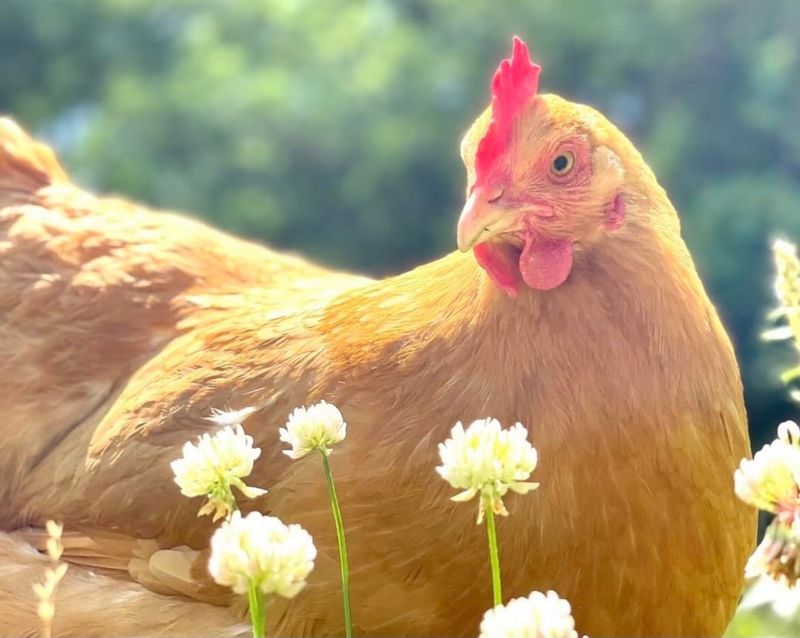
They’re usually seen on farms, but chicks are being more and more recognized as therapy animals. Their friendly and inquisitive nature offers a unique form of companionship.
These birds provide comfort and joy through their lively antics and gentle presence. Chickens are relatively easy to care for, requiring a simple diet and secure living space.
As therapy animals, chickens can help reduce stress and promote a sense of responsibility. Their presence brings a touch of rural charm and warmth, offering unconventional yet effective emotional support.
13. Turtle

Turtles offer a calming presence for those seeking emotional support. Their peaceful nature can help alleviate stress and anxiety.
Caring for a turtle involves maintaining a suitable habitat and regular feeding, making them low-maintenance pets. Their unique characteristics can be a source of fascination and joy.
For individuals who appreciate quiet companionship, turtles provide a sense of tranquility and wonder. Their presence can help create a serene and calming environment, offering a soothing form of therapy.
14. Rat
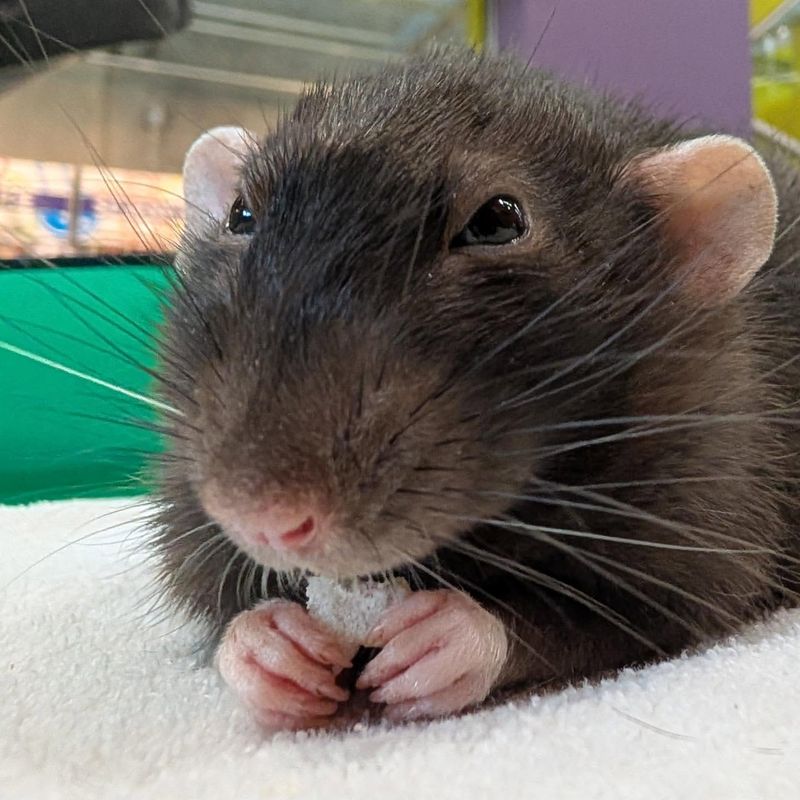
I don’t know about this… But I admit that rats are intelligent and sociable animals, which makes them excellent therapy pets. Their friendly nature and playful antics bring comfort and joy to their owners.
These animals thrive on interaction and can form strong bonds with humans. Rats are relatively easy to care for, requiring a simple diet and secure living space.
As therapy animals, rats offer companionship and can help reduce feelings of loneliness or stress. Their engaging presence and gentle demeanor make them a delightful choice for emotional support.
15. Goat
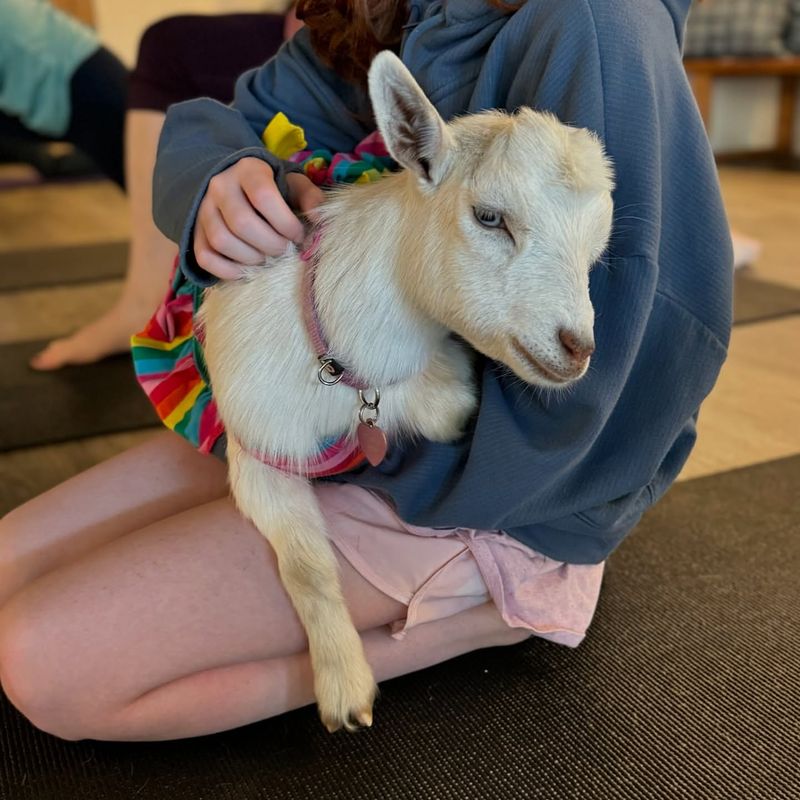
Goats, with their playful and curious nature, offer a unique form of emotional support. Their friendly demeanor and gentle interactions can provide comfort and companionship.
These animals are known for their ability to form strong bonds with humans, responding to affection and care. Goats are particularly suitable for those who appreciate a lively and loving pet.
As therapy animals, goats bring joy and laughter, helping to alleviate stress and loneliness. Their presence offers an unconventional yet effective form of emotional support.
16. Duck

Ducks are friendly and sociable birds, offering a unique form of emotional support. Their gentle quacks and waddling antics provide a sense of joy and comfort.
These birds thrive in outdoor spaces where they can explore and interact with their environment. Ducks are relatively easy to care for, requiring a simple diet and secure habitat.
As therapy animals, ducks can help reduce stress and promote a sense of tranquility. Their presence brings a touch of nature’s charm and warmth, offering unconventional yet effective emotional support.
17. Hedgehog
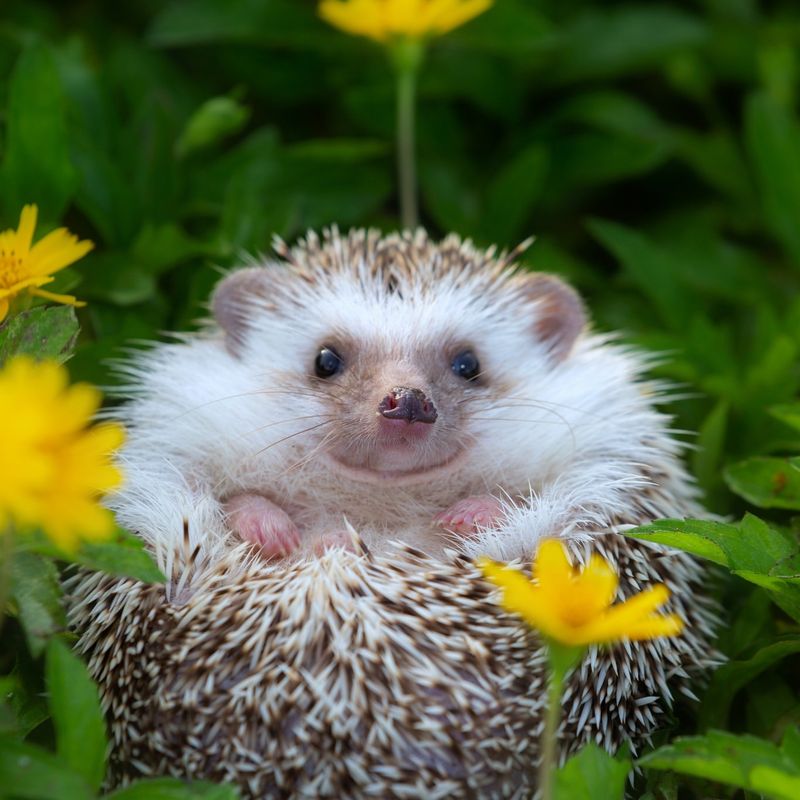
Hedgehogs, with their unique appearance and gentle nature, offer a distinct form of emotional support. Their quiet demeanor and soft spines provide a comforting presence.
These small animals are relatively low maintenance, requiring a simple diet and secure environment. Hedgehogs thrive on gentle handling and interaction, making them suitable for individuals seeking quiet companionship.
As therapy animals, hedgehogs offer a sense of tranquility and fascination. Their presence can help reduce stress and promote a calming atmosphere, providing a soothing form of therapy.
18. Fish

With their graceful movements and vibrant colors, fish offer a calming presence for those seeking emotional support. Watching fish swim can be a soothing and meditative experience.
Caring for fish involves maintaining a clean tank and regular feeding, making them low-maintenance pets. Their presence can create a peaceful and serene environment.
As therapy animals, fish provide a sense of tranquility and wonder. Their unique characteristics can be a source of fascination and joy, offering an unconventional yet effective form of emotional support.
19. Alpaca

Alpacas, with their gentle and friendly demeanor, offer a unique form of emotional support. Their soft fleece and curious nature provide comfort and companionship.
These animals are known for their ability to form strong bonds with humans, responding to affection and care. Alpacas are particularly suitable for those who appreciate a serene and loving pet.
As therapy animals, alpacas bring joy and relaxation, helping to alleviate stress and loneliness. Their presence offers an unconventional yet effective form of emotional support.
20. Miniature Donkey
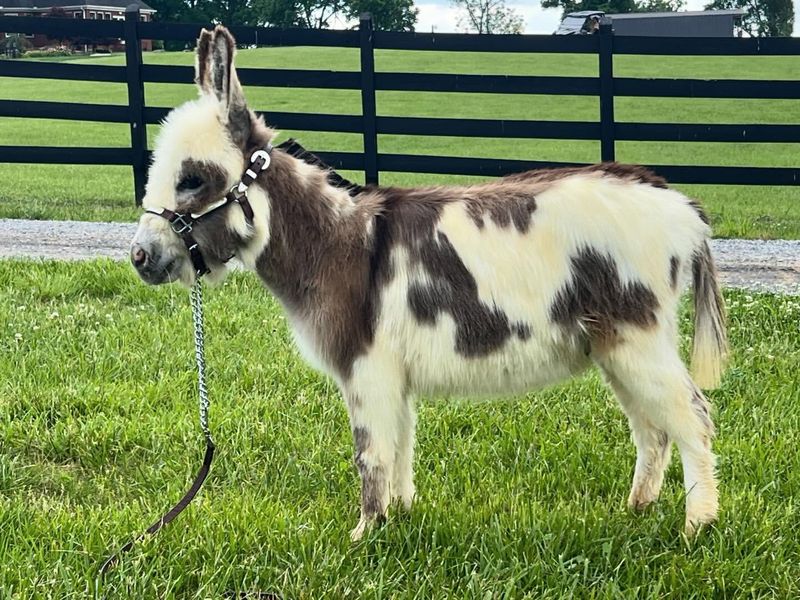
Miniature donkeys, with their gentle and affectionate nature, are becoming popular therapy animals. Their calm demeanor and friendly interactions provide emotional support and companionship.
These small animals are easy to care for, requiring a simple diet and secure living space. Miniature donkeys thrive on interaction and can form strong bonds with their owners.
As therapy animals, they offer a sense of joy and comfort, helping to reduce stress and promote well-being. Their presence brings a touch of rural charm and warmth, offering unconventional yet effective emotional support.

